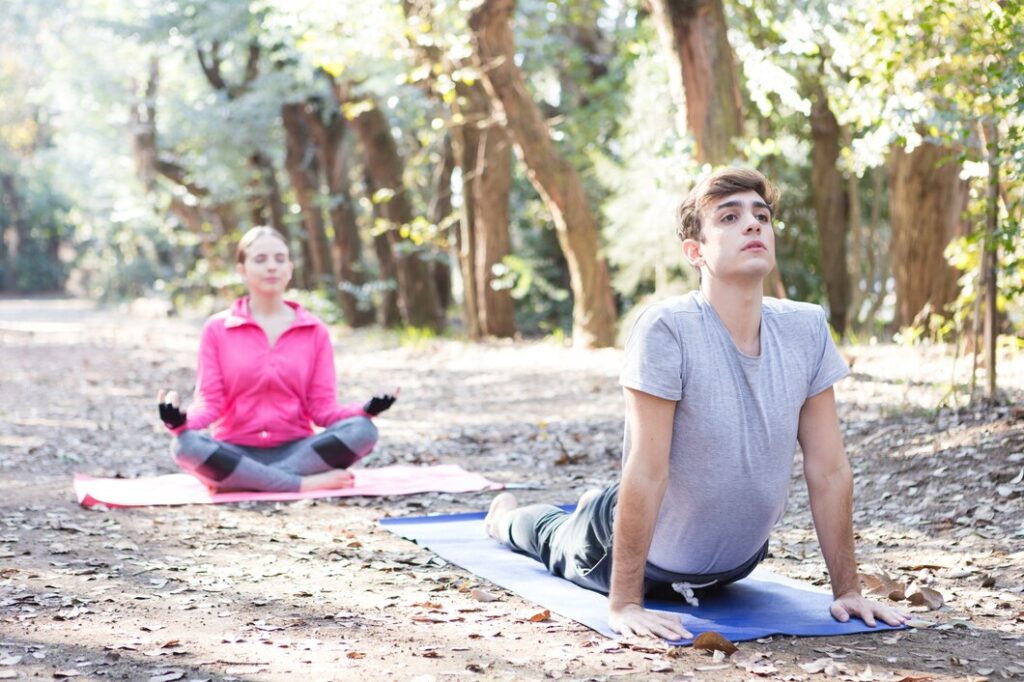There is an article on “How to Be More Spontaneous” with a simple, unique design and fresh ideas involves a blend of creativity, psychological insights, and practical advice. Let’s break it down into an engaging structure:
Table of Contents
1. Introduction
In our fast-paced world, spontaneity often takes a back seat to meticulous planning and rigid routines. However, the ability to act on impulse, explore the unknown, and embrace unexpected opportunities can significantly enrich our lives. Spontaneity is not merely about making rash decisions; it’s about being open to new experiences, stepping outside our comfort zones, and living life to the fullest. This article explores various ways to cultivate spontaneity, offering fresh ideas and practical tips to help you become more spontaneous in your everyday life.
2. The Science of Spontaneity

To understand spontaneity, we must first explore the psychological and neurological mechanisms behind it. Our brains are wired with a default mode network (DMN) responsible for daydreaming and internal thoughts, and an executive control network that manages decision-making and planning. The interplay between these networks can either encourage or inhibit spontaneous behavior.
Studies have shown that dopamine, a neurotransmitter associated with pleasure and reward, plays a crucial role in spontaneous actions. When we experience something new or unexpected, dopamine levels increase, prompting us to seek out novel experiences. Understanding these biological processes can help us harness the power of spontaneity in our lives.
3. Breaking Free from Routine: The First Step
Routines provide comfort and predictability, but they can also trap us in a cycle of monotony. To be more spontaneous, we must first recognize and challenge the routines that dominate our lives. Start by identifying small, manageable changes you can make to your daily habits. For example, take a different route to work, try a new type of cuisine, or engage in a new hobby. These small changes can help break the cycle of routine and open up opportunities for spontaneous experiences.
4. Mindfulness and Living in the Moment

Mindfulness, the practice of being present and fully engaged in the current moment, is closely linked to spontaneity. By cultivating mindfulness, we can become more aware of our surroundings, thoughts, and feelings, allowing us to act on impulses and embrace new experiences. Techniques such as meditation, mindful breathing, and active listening can help us develop this awareness. Additionally, nurturing curiosity and a sense of wonder can inspire spontaneous actions and explorations.
5. Embracing Uncertainty and Overcoming Fear
One of the biggest obstacles to spontaneity is the fear of the unknown. This fear often stems from a desire for control and a reluctance to step outside our comfort zones. However, embracing uncertainty is essential for living a spontaneous life. To overcome this fear, we can practice exposure therapy, gradually exposing ourselves to new and unfamiliar situations. Additionally, cognitive restructuring can help us reframe our thoughts about uncertainty, viewing it as an opportunity for growth rather than a threat.
6. Building Confidence and Trusting Intuition

Confidence is a key ingredient in spontaneous behavior. When we believe in our abilities and judgment, we are more likely to take risks and explore new opportunities. To build confidence, engage in activities that challenge you and allow you to develop new skills. Self-affirmation and positive self-talk can also bolster your confidence. Trusting your intuition, or “gut feelings,” is another crucial aspect of spontaneity. Our intuition is often a reflection of our subconscious knowledge and experiences, guiding us towards actions that align with our true selves.
7. Creating Opportunities for Spontaneity
Spontaneity doesn’t just happen; it often requires a conducive environment. To foster spontaneity, surround yourself with stimuli that inspire new ideas and actions. This might include engaging in new hobbies, meeting new people, or exploring different places. The “Yes, and…” technique, borrowed from improvisational theatre, can also be a powerful tool. By building on others’ ideas and suggestions rather than shutting them down, you can create a more open and spontaneous environment.
8. Letting Go of Perfectionism and Control

Perfectionism and the need for control can stifle spontaneity. The desire for everything to be perfect often leads to overthinking and hesitation, preventing us from seizing spontaneous opportunities. To counter this, practice setting flexible goals and embrace the idea of “good enough.” Self-compassion is also vital; accept that mistakes are a natural part of life and can be valuable learning experiences. Learning to delegate and share responsibilities can also reduce the burden of control, allowing for more spontaneous actions.
9. Spontaneous Relationships: Nurturing Bonds Through Surprise
Spontaneity can play a crucial role in keeping personal and romantic relationships vibrant and exciting. Surprise your partner with an impromptu date, a heartfelt note, or a small gift. These unexpected gestures can strengthen your bond and create lasting memories. Open communication is key; encourage your partner to share their spontaneous ideas and embrace a culture of spontaneity within your relationship.
10. Spontaneity at Work: Balancing Structure and Creativity

While the workplace often demands structure and predictability, there is still room for spontaneity. Spontaneous actions, such as taking a break for a walk or initiating an impromptu brainstorming session, can boost creativity and productivity. Encourage a culture of innovation by being open to new ideas and flexible working hours. Balancing structure with spontaneity can lead to a more dynamic and fulfilling work environment.
11. Mindful Consumption of Media and Information
In an age of information overload, our consumption habits can significantly impact our spontaneity and creativity. Be mindful of the media and content you consume, setting screen time limits and choosing content that inspires and challenges you. Exploring new genres, perspectives, and mediums can broaden your horizons and spark spontaneous ideas.
12. Physical and Mental Well-being: The Foundation of Spontaneity

Our physical and mental well-being are foundational to our ability to be spontaneous. Regular exercise, a balanced diet, and sufficient sleep are crucial for maintaining energy levels and a positive mindset. Additionally, mental health practices such as stress management techniques, mindfulness, and maintaining a positive outlook can support spontaneous behavior.
13. Documenting and Reflecting on Spontaneous Experiences
Keeping a spontaneity journal can be a valuable tool for personal growth. Document your spontaneous experiences, reflecting on what you learned and how they made you feel. This practice can help you identify patterns and set new challenges for yourself. Celebrate your spontaneous moments, no matter how small, and use them as motivation to continue embracing spontaneity.
14. Overcoming Common Barriers to Spontaneity

Time constraints, financial limitations, and social expectations can often hinder our ability to be spontaneous. However, with creativity and resourcefulness, these barriers can be overcome. For example, set aside “spontaneity funds” for unplanned activities, or find cost-effective ways to explore new experiences. Shift your mindset from “I can’t” to “How can I?” and seek out solutions rather than focusing on limitations.
Things You Should Know
Spontaneity is not about making reckless decisions; it’s about embracing the present moment and being open to new experiences. By understanding the science behind spontaneity, breaking free from routines, and cultivating a mindset of curiosity and openness, we can enrich our lives and foster personal growth. Start small, be patient with yourself, and gradually embrace spontaneity as a way of life. The rewards are immense, leading to greater happiness, creativity, and resilience in the face of life’s challenges.




Pingback: How To Accomplish A Goal: To 10 Strategies To Achieve - How Eaze
Hey people!!!!!
Good mood and good luck to everyone!!!!!
Some truly excellent posts on this website , regards for contribution.